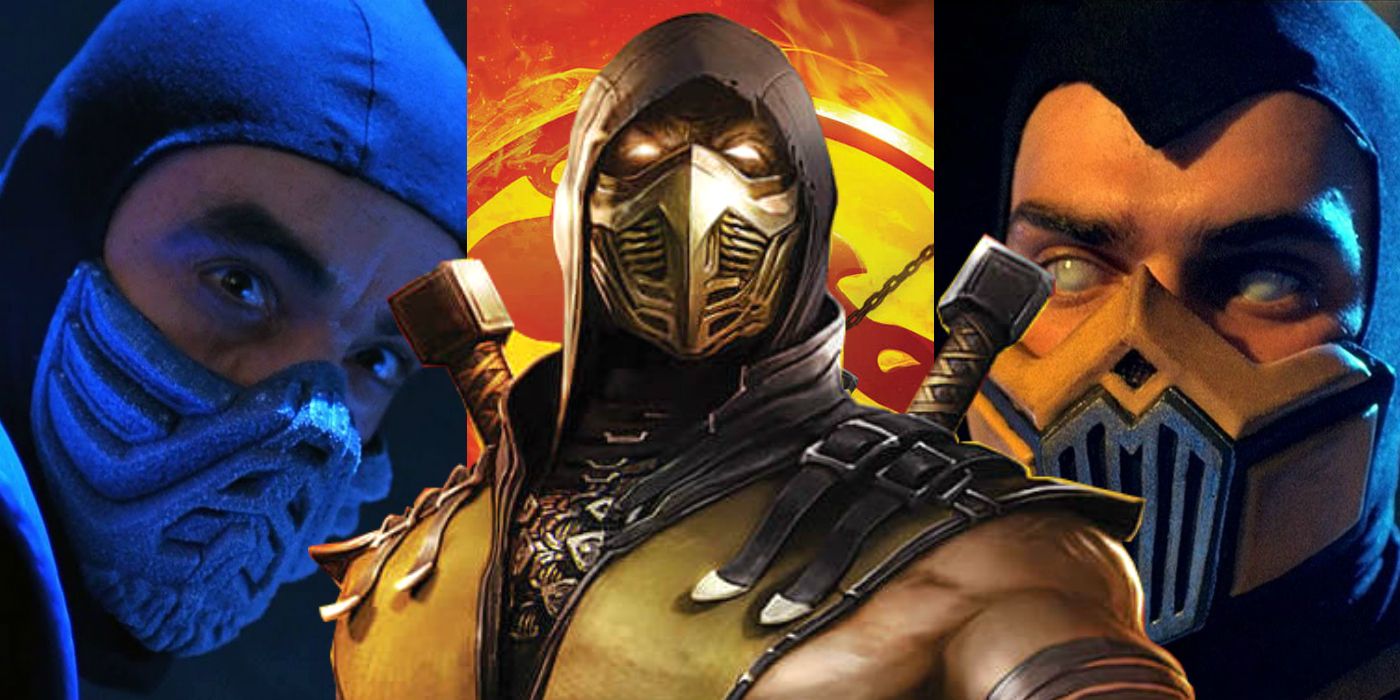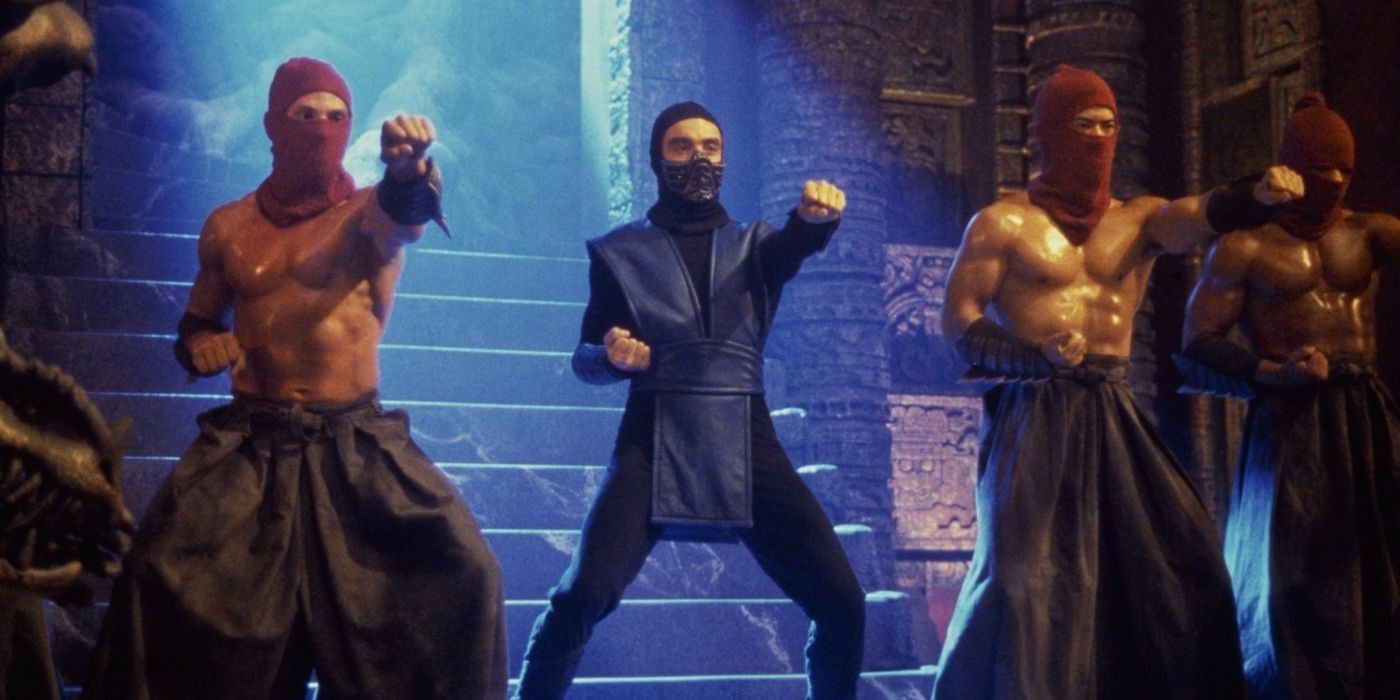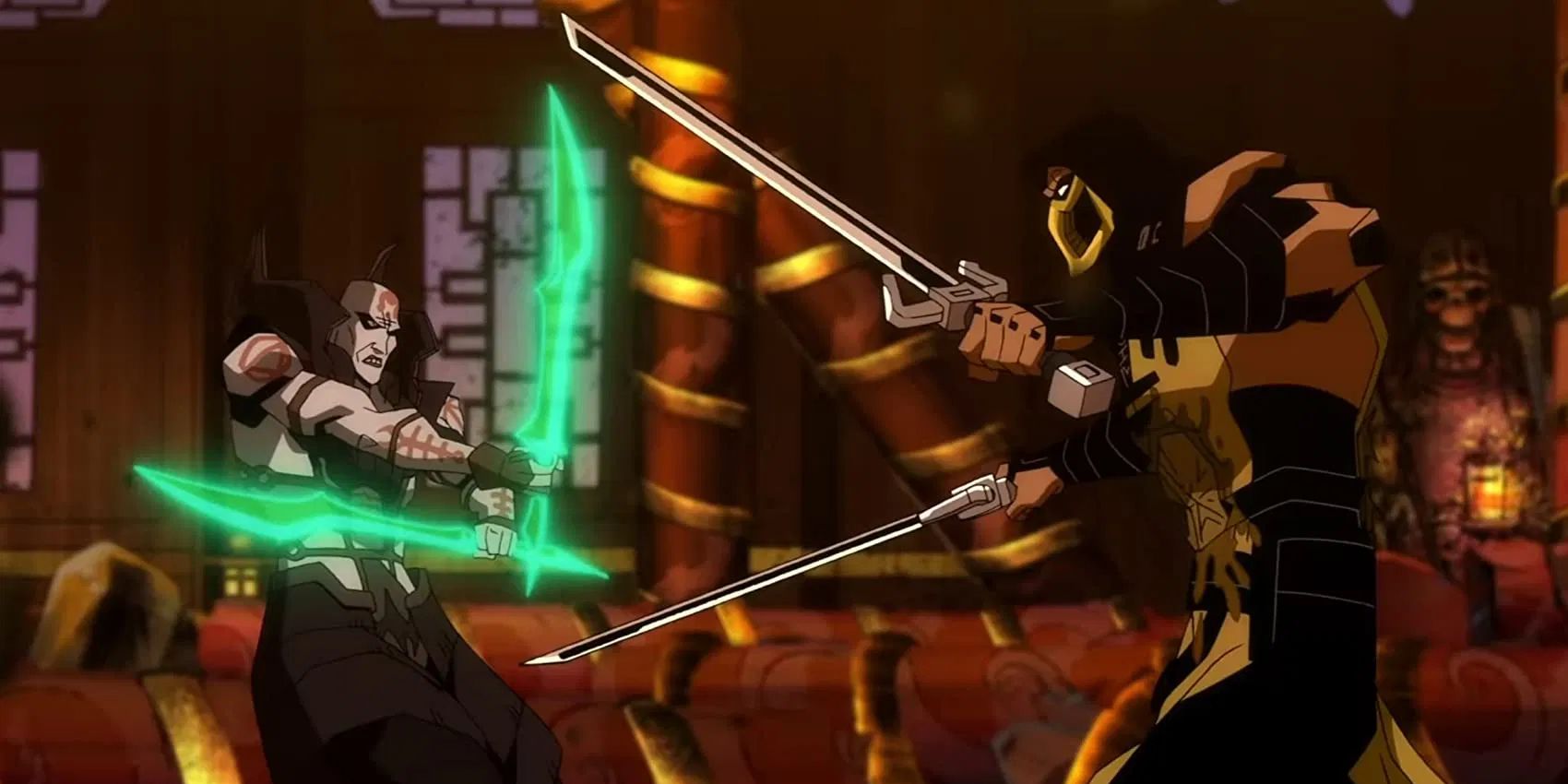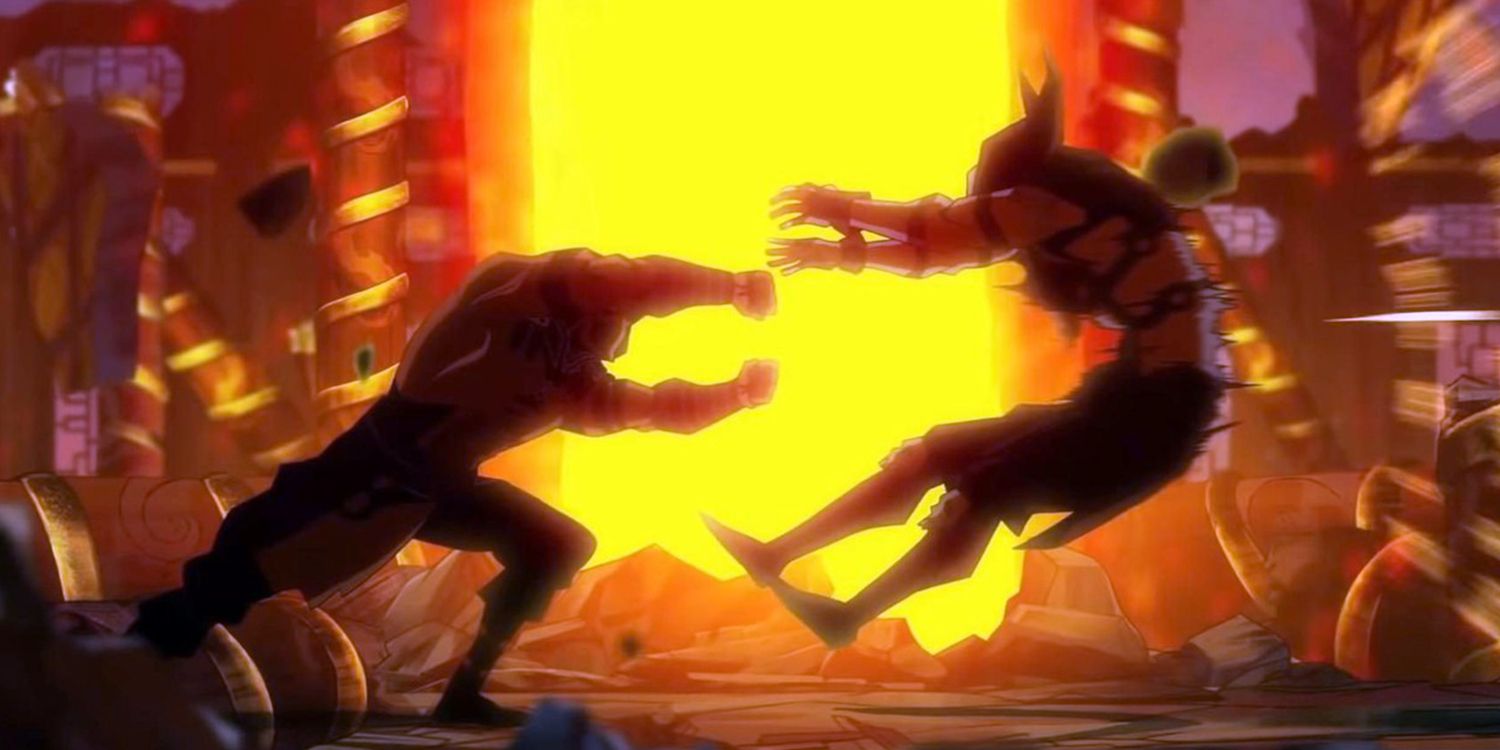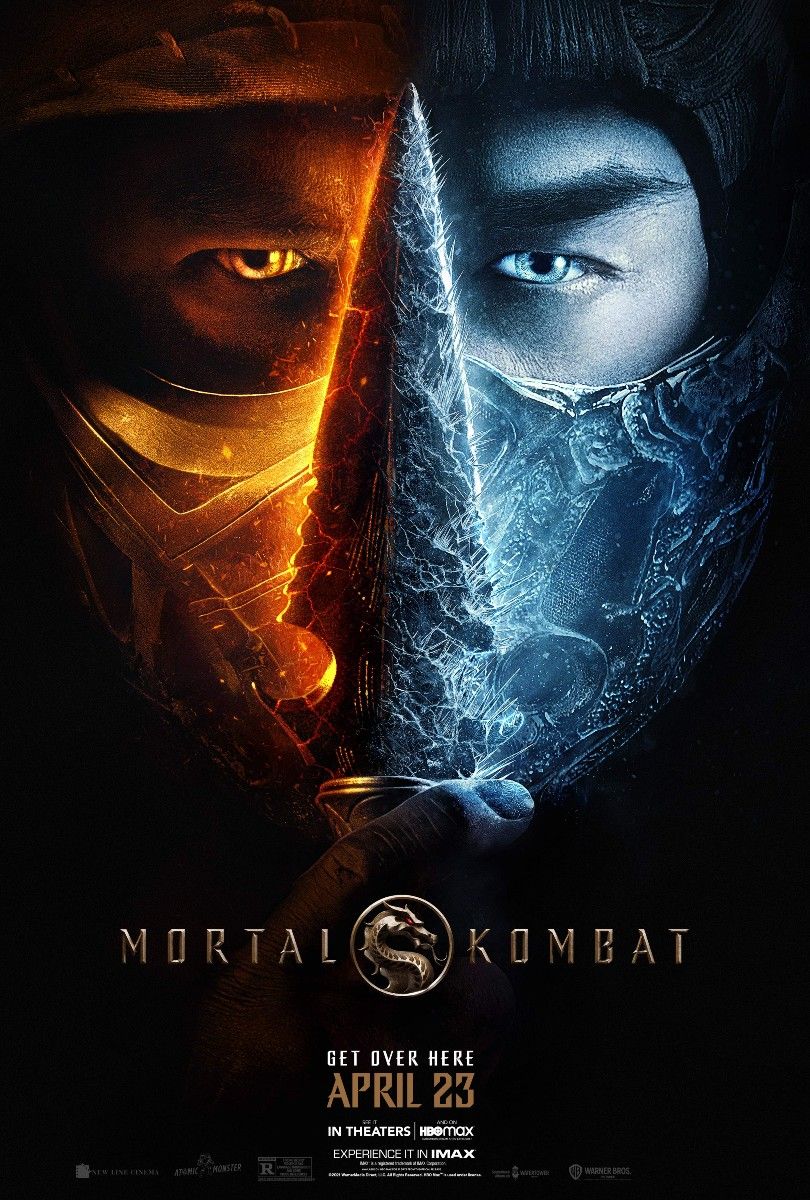It took quite a long time, but the Mortal Kombat video games finally got a faithful cinematic adaptation with the release of Mortal Kombat Legends: Scorpion's Revenge. The animated film tells the origin story of Hanzo Hasashi (Patrick Seitz), and how his death and the extermination of his tribe at the hands of Sub-Zero (Steve Blum) and the Lin Kuei clan lead him to seek vengeance after being resurrected in the Netherrealm by the sorcerer Quan Chi (Darin De Paul). The ruthless fighter adopts the name of Scorpion and endeavors to hunt Sub-Zero in the tenth Mortal Kombat tournament, where he runs into the newcomers Johnny Cage (Joel McHale), Sonya (Jennifer Carpenter), and Liu Kang (Jordan Rodrigues) on a competition to save the world.
Mortal Kombat Legends: Scorpion's Revenge is produced by Warner Bros. Animation and directed by Ethan Spaulding - known for his work on Justice League: Throne of Atlantis and Batman: Assault on Arkham. It released on digital on April 14 and Blu-ray on April 28, amidst the coronavirus pandemic, and received a highly positive reception from fans and critics. Scorpion's Revenge features a cast of experienced voice actors and an authentic interpretation of the original characters, costumes, and lore from the Mortal Kombat video game franchise.
Translating video games to other media is known to be particularly difficult, as failed projects like the 1993 Super Mario Bros. movie and Uwe Boll's catastrophic Alone in the Dark rendition have demonstrated throughout the years. Mortal Kombat has always been one of the titles that fans have expected the most to see adapted on the big screen since the rise to popularity of the original games, but various attempts at recreating their magic continued to miss the point. Although Mortal Kombat Legends: Scorpion's Revenge is an animated direct-to-video film instead of the live-action theatrical release that the fans are so eagerly waiting for, it has managed to become the best alternate depiction of the games so far. Here's why.
Mortal Kombat Movies Have Struggled Before
Released in 1995, the first Mortal Kombat live-action film attempted to incorporate everything that made the first two games so popular only a couple of years prior to its release. This would become perhaps its biggest pitfall, given the limited time each character had to develop an on-screen personality, perform multiple action sequences, and interact with the rest of the characters. Essential fighters like Scorpion and Sub-Zero even suffered a downgrade from mortal enemies to mere henchmen, skipping any hint of relevance within the plot to only show up for the fight scenes. The dialogue was comical, the performances stilted, and the trademark gore from the games was missing entirely. Regardless of its many flaws, the movie collected $122 million worldwide and slowly turned into a cult classic.
Those box office results gave the green light to a sequel that would come two years later, Mortal Kombat: Annihilation. But instead of fixing up the overabundance of characters from the first movie and its discrepancy of tones in relation to the games, the sequel chose to focus on escalating its reliance on visual effects. Coupled with the subpar dialogue, Mortal Kombat: Annihilation not only failed to surpass the quality of the 1995 movie but also lost the few traits that earned the first Mortal Kombat a cult following. The absurd fun from the original was replaced by outright clumsiness.
Surprisingly, Scorpion's Revenge isn't the first animated Mortal Kombat project. As an unofficial prequel to 1995's Mortal Kombat, an animated short called Mortal Kombat: The Journey Begins was released on VHS to tie in with the movie. It used a dated mix of 2D animation, motion capture, and barebones CGI to promote the film. It also contained a brief behind-the-scenes segment of the live-action movie. Needless to say, the animation was rushed and the plot made little sense, therefore it's barely recognized as part of the Mortal Kombat legacy.
What Mortal Kombat Legends: Scorpion's Revenge Gets Right
One of the greatest feats that Scorpion's Revenge achieves is being the first Mortal Kombat adaptation to receive an R rating. Contrary to the previous films, the fights are brutal, bloody, and relentless. The gore and violence in the games are a central point of interest for all Mortal Kombat fans, so keeping them away from the franchise would only be detrimental to any adaptation, regardless of how much they tried to conceal its absence. Despite the lack of proper fatalities - another trademark from the games, in which the characters brutally finish their opponents with a final gruesome move - Scorpion's Revenge makes it clear from the very beginning that the fighters won't be shy of spilling blood or breaking spines to defeat their enemies: The Warner Bros. Animation logo opens with Daffy Duck getting strangled by Scorpion before the movie even starts.
The animation style in the fights is particularly appropriate. The movements of the characters by themselves feel violent, even without taking the blood into account - something that fits perfectly with the brutal nature of the fights and the moments of explicit gore that make the video games stand out. The costumes, based on the ones used in Mortal Kombat X, are more than faithful to the games and fitting for the animation format - somewhere between mystical action figures and grounded martial arts fantasy. These wardrobe choices probably wouldn't work as well in a live-action adaptation, where it's more common to find grittier and more practical suits. The designs of the characters also exploit the creative freedom that the animation format brings while maintaining the faithfulness to the source material, giving them each a unique style.
Mortal Kombat Legends: Scorpion's Revenge also gets the narrative tone right: the fights are wild and aren't afraid of distancing themselves from realism, but the overarching story is serious enough to let the audience care about what the characters are fighting for. The motivations of Scorpion, Johnny Cage, Sonya, and Liu Kang are explored sufficiently in the runtime of the film to not let anyone of them behind, while still balancing their development with the action sequences. One of the keys to a consistent Mortal Kombat movie is not pushing one to the side in favor of the other.
Mortal Kombat Should Have An Animated Series Now
The upcoming live-action Mortal Kombat adaptation has recently finished filming. Aquaman director James Wan has been producing the project with Todd Garner, and Simon McQuoid as the director. There's a lot of pressure so as not to repeat the mistakes of the past, but the weakness that has made the live-action attempts fail can become a considerable advantage for an animated series based on the title. The Mortal Kombat lore may be more organic in this format. An animated show could dedicate enough time to every character and their respective subplots, as well as their trademark attributes from the games. Most abilities and moves (like fan-favorite fatalities and combos) could be translated more accurately and easily in animation than in live-action.
The nature of animation allows for crazier visual and narrative content than live-action with fewer worries about photorealism or budget. Everything that happens onscreen is the result of intricate illustrations and effects from the hands of several talented artists, but drawing a four-armed half-dragon warrior takes around the same amount of resources as drawing a regular human with a tight jacket and a pair of shades - compared to the amount of VFX, makeup, camerawork, and even practical effects that a character like Goro (Kevin Michael Richardson) could require in a live-action setting. In an animated series, this can be exploited to get closer to what made the games stand out from similar ones like Street Fighter and Tekken. Scorpion's Revenge establishes a style that promises to equal anime and cartoon series with similar tones and narratives that have succeeded in the past, while also exploiting the advantage of its established fanbase and its extensive lore.
The narrative possibilities also open up to allow new things to happen and create more connections to the games. The entire history from the games can be adapted in its entirety faithfully and with an appropriate pace, without the need to summarize it in a film or limit it to live-action possibilities. An animated series also allows for original input to be able to exist and be symbiotic with the evolution of the games: It would let the audience explore the world of Mortal Kombat in detail outside the fights of the tournament, something that can't even be done in the games, let alone in a live-action movie.
Animated shows based on video games have suffered from the same curse of the movies, for the most part. The short-lived Legend of Zelda and Mario animated shows are now remembered almost only for how funny they came across. But Mortal Kombat Legends: Scorpion's Revenge shows enough quality and respect for the source material to establish the beginning of a high-level franchise with its own merits, akin to the likes of Pokemon (based on a game), Dragon Ball (based on a manga), and Batman: The Animated Series (based on comic books). It covers all the bases to become the next big animated series if there's enough faith in it. So far, it's already safe to say it was worth the wait.

